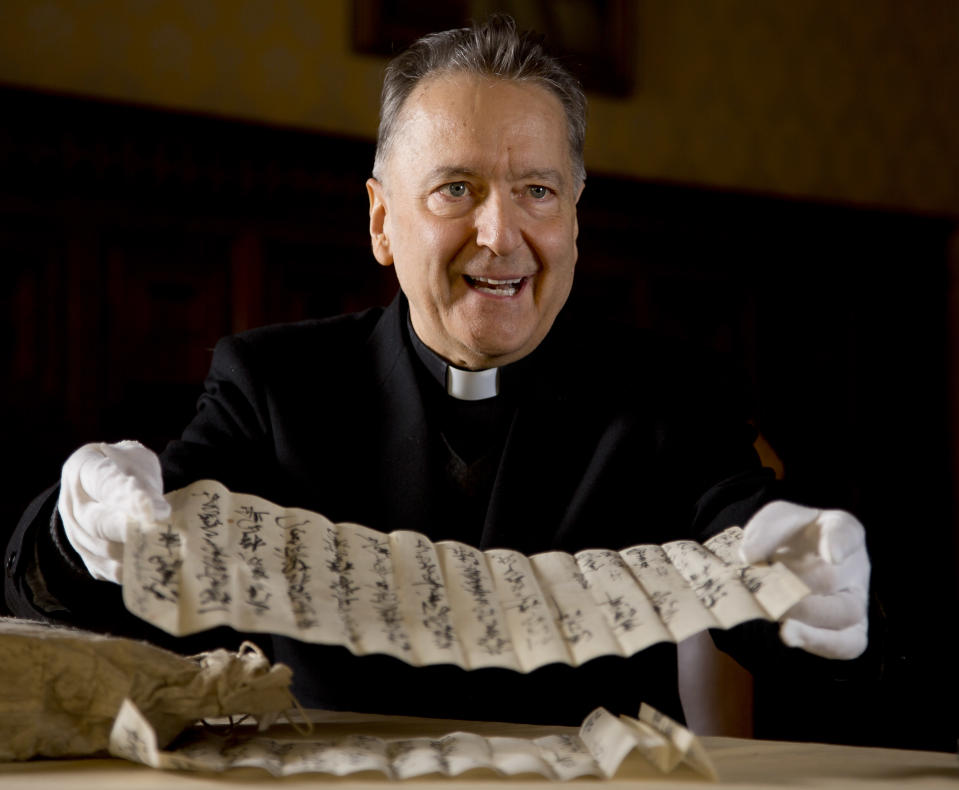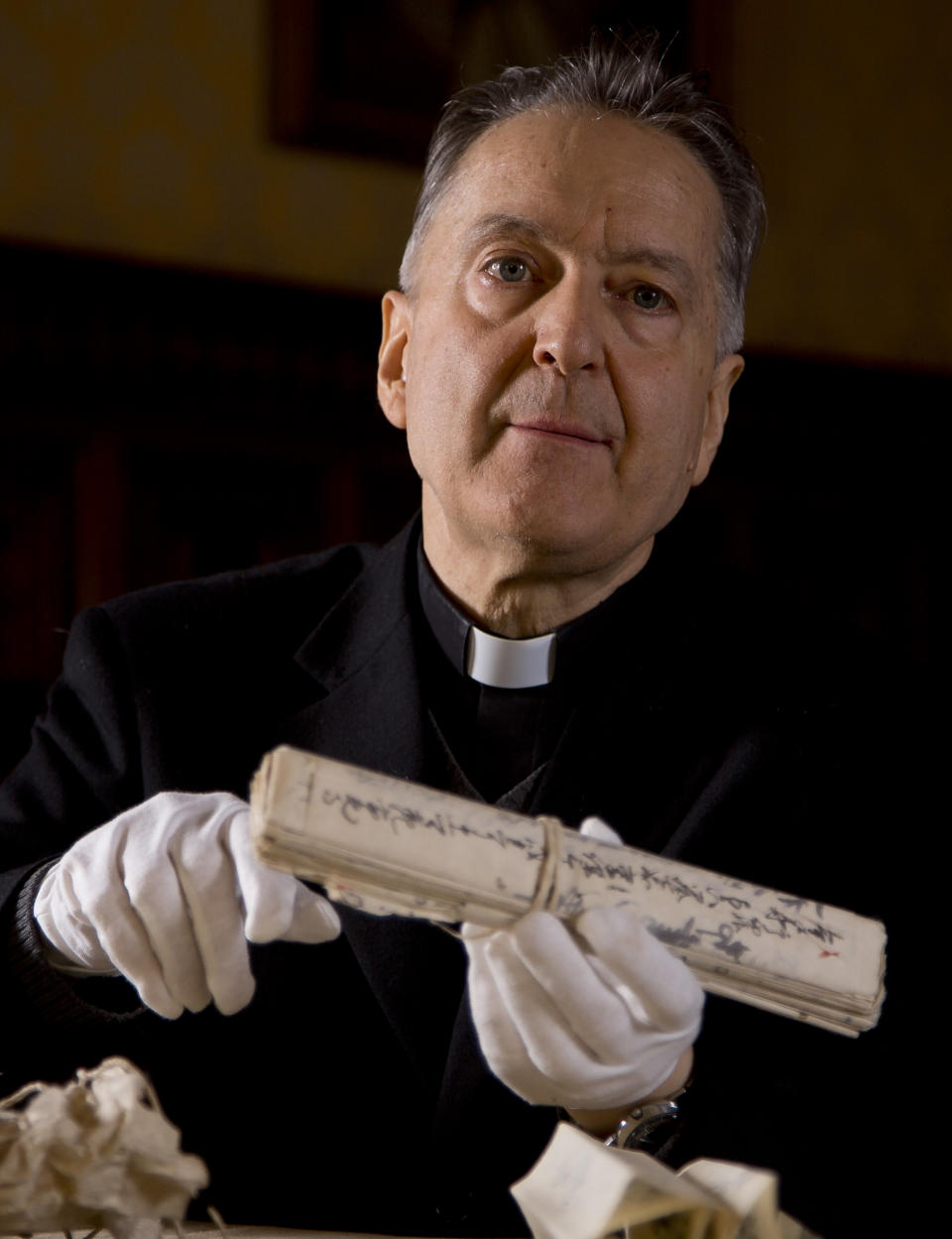Vatican Library, Japan to catalogue lost archive
VATICAN CITY (AP) — The Vatican library and four Japanese historical institutes have agreed to inventory, catalogue and digitize 10,000 documents from a lost Japanese archive detailing the persecution of Christians in Japan in the 17th-19th centuries.
Monsignor Cesare Pasini, head of the Vatican's Apostolic Library, said the so-called Marega Papers represent the largest known civic archive of its kind.
An Italian missionary priest took the 22 bundles of documents out of Japan in the 1940s and brought them to Rome. They sat in the Vatican library's storage depository for decades until a Vatican researcher who could read the characters realized their importance in 2010.
Contacts with Japanese experts ensued, and a team of Japanese researchers came to the Vatican in September to have a first look at the trove. On Tuesday, a six-year agreement to inventory the documents and prepare them for study was signed between the Vatican Library and the National Institute of Japanese Literature, the National Museum of Japanese History, the historiographical institute of the University of Tokyo and the archive of the prefecture of Oita.
"It is clear that these documents are unique," Pasini said Tuesday in an interview with The Associated Press. "The Japanese experts say that there is no other collection this big."
He spoke as he unrolled one of the rice-paper scrolls dating from 1719, his hands gloved to protect the calligraphy and delicate paper that had been folded up and tied with string and placed with dozens of others in a rice-paper bag. The document described the death of a Christian or a former Christian and was recorded by the local civic archive of Bungo, today Usuki in the prefecture of Oita.
Pasini explained: Jesuit missionaries first began spreading the faith in Japan in 1549, famously led by St. Francis Xavier, one of the founders of Pope Francis' Jesuit order. By 1585 Christianity had spread so much that a delegation of four young Japanese Catholics traveled halfway around the globe to participate in the festivities of the election of Pope Sixtus V in Rome.
But a backlash against Christians was already brewing and persecution became rampant and systematic, with Christians executed en masse including the famous 26 martyrs crucified in Nagasaki in 1597. In 1612 a famous anti-Christian edict was passed and a few years later Christianity was banned outright.
The documentation in the Vatican archives illustrates how Japanese civic authorities enforced the ban, relying on local Buddhist pagodas to record and document when a Christian had renounced the faith or died, Pasini said.
Freedom of religion was reintroduced in Japan in the late 1800s, and by the 1920s a Salesian missionary, the Rev. Mario Marega, was living and working in Japan and came into the possession of the civic archive from Bungo. It's unclear when exactly then papers arrived in Rome, but it's believed to have been in the 1950s. By then Marega had written a two-volume book summarizing the contents of the documents, but the bundles of rice paper went untouched until Delio Proverbio, an orientalist researcher at the Vatican Library, found them in 2010.
"Let's just say curiosity made me open the packages," Proverbio confessed on Tuesday. "It wasn't illicit but it wasn't foreseen."
Pasini stnxaid it was particularly significant that scholars from Japan, which had such a tortured relationship with Christianity in the past, would now be working in the Vatican Library to help bring to light a shared history.
"Culture creates bridges," he said.
___
Follow Nicole Winfield at www.twitter.com/nwinfield





